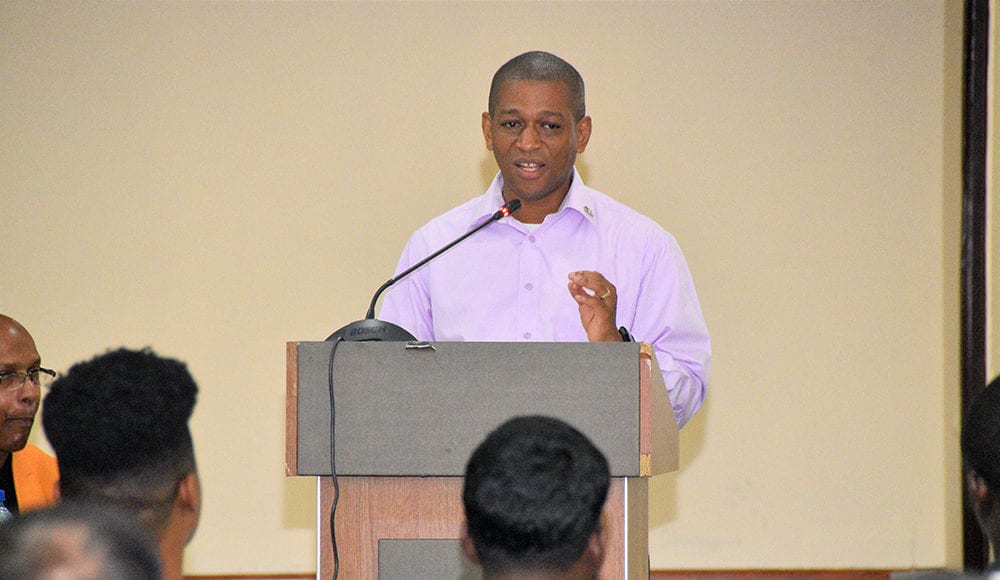Guyana’s Department of Energy wants oil revenue to be used to pursue investment initiatives that are feasible and intends to advise government against plugging cash into ventures that could result in future regrets. So says Energy Department Director Dr. Mark Bynoe who was at the time alluding to the uncertainties associated with setting up a refinery in the South American country.
Speaking to a gathering of men on Saturday on the outskirts of Georgetown, Dr. Bynoe said with the advent of first oil, cheap fuel can be provided without a local refinery. The Energy Director said that his Department will only pursue evidence-based decision making, which will lead to prudent, non-regrettable investments.
“We have never said that there will never be a refinery. At this time a refinery is not feasible… I think what most people are conflating is not if a refinery should come to shore, it’s whether or not we should have cheap fuel. A refinery doesn’t mean cheap fuel, or the absence of a refinery doesn’t mean that you will not have cheap fuel, cheap fuel is a policy decision and there are many ways by which you can ultimately have cheap fuel… I cannot advise my Minister to pursue an investment down a rabbit hole. What the Department is concerned about is what we call ‘no-regrets investment’. When you invest today, you must not regret tomorrow… it must be monies that are well spent,” Dr. Bynoe said.
Additionally, he said the industry must be managed to the benefit of all Guyanese.
“We are accountable first and foremost to the people of Guyana. These resources are not Bynoe’s resources; these resources do not belong to the President of Guyana; they belong to Guyanese… and the minute we stop the distinguishing about ethnicity, the better it will be for all Guyanese,” Dr. Bynoe said.
He was at the time addressing the Men’s Regional Convention organised by the Restoration Temple A.O.G., in New York, in collaboration with the Mocha Church of the Nazarene.
Meanwhile, during the interactive session, participant Mr. Dornnel McFarlane said as a Communications student at the University of Guyana, he now has a better understanding of the role that he can play in the development of the oil and gas sector.
“… I can play a very integral role in disseminating information that is very objective, that will lead to truth and confidence and that will surely show the real picture. Another thing that stood out to me is that the contracts [are] not as bad as they seem. How Dr. Bynoe explained the contracts, I recognise that it’s really and truly moving Guyana forward,” he said.
The Convention was held at the Ramada Hotel, East Bank Demerara.




Isn’t it time for Dr. Bynoe to inform the people of Guyana as to the status of associated gas.
What is the gas/oil ratio?
One has to assume ( or at least one should assume) that flaring will not be permitted for obvious reasons . We understand that gas will be used for re-injection to maintain reservoir pressure however it would be nice to know if indeed there will be a surplus after re-injection and if so what are the plans for that gas. Has an LNG option been considered despite the low market price? What about a “ gas to wire” option either in a floating senerio or better still through a pipeline to shore.
I know from visits to Guyana that the current method of power generation burning bunkers and heavy oils is not environmentally responsible and therefore a discussion about using surplus gas is warranted
Rob Strong